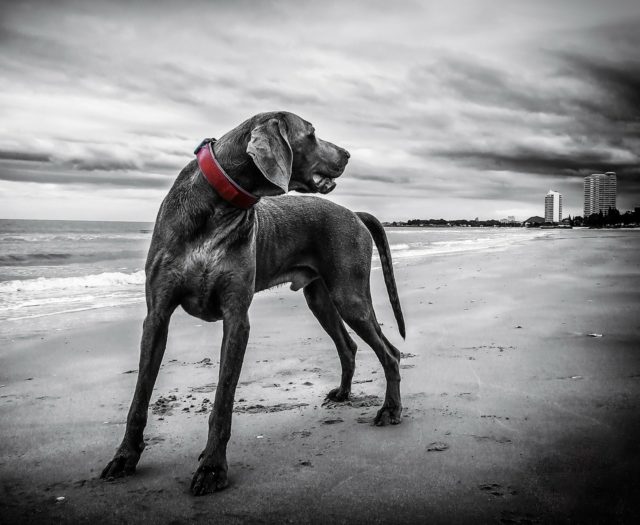
Incessant barking as reported by neighbors, poop in the house other than his bathroom area, and a hole in the kitchen door – Do any of them sound familiar whenever you leave your dog?
It has been a misbelief that dogs go through the destructive phase because of boredom or you suppose that he intentionally misbehaved to torment you for being gone the whole day. Misbehaving is usually a dog’s reaction to fear that are oftentimes the cause of canine separation anxiety.
Separation anxiety is a common behavior issue in dogs. In the United States, approximately 15% of pet dogs suffer from separation anxiety.
Dogs, as instinctual pack animals, always have the need to be in a group, and you, the owner, serve as their pack leader. Being the master, they find it comforting to always have you around but will feel anxious whenever you leave.
Dogs that have separation anxiety can become restless when left alone. They will urinate or defecate anywhere, bark and howl at nothing, and scratch or chew on windows or doors to try to escape. In some cases where the dog is overly attached to his human, he gets agitated as soon as his master prepares to leave. Additionally, once the fur parent returns home, he will be too excited as if it’s been years since he has last seen his mom or dad.
Although there is no solid evidence on what causes separation anxiety, it has been connected to loss of a very important person or group of persons in a dog’s life as it is commonly observed in dogs that have been rescued from shelters or those who have had several owners versus dogs that have been with only one family since puppyhood.
Less dramatic situations were also associated to separation anxiety. These include:
· Abrupt change in schedule. Separation anxiety can develop when an owner, who has telecommuted for work for the longest time, spending his day with his dog, suddenly gets a new job that requires him to leave the house.
· Change in residence. A new environment for a canine can be a trigger.
· Change in household membership. Whether death or moving away, dogs will never understand why a family member is no longer around.
Separation anxiety in dogs can be managed and corrected in several ways. However, it is advisable that you have your pooch examined by your vet to rule out any possibility of underlying conditions, both medical and behavioral.
After the vet clears your dog of any health issue that may otherwise cause the uncontrolled urination or defecation and you are certain that your pooch has been fully housetrained, it’s time for behavior modification to help an anxious and fearful dog become more relaxed and comfortable even when home alone.
Counterconditioning is the most common and most effective treatment process in curbing separation anxiety. It is done by associating a feared event to a rewarding and positive outcome. For example, just about before you leave the house; give your dog a Kong stuffed with low fat peanut butter or cream cheese. The Kong can even be frozen so it takes more of your dog’s time, but make sure you take away any special toys and treats the moment you get home. This way, he will learn that he can only get access to them when he is by himself.
In cases where the separation anxiety appears to be severe, it is best to seek help from a veterinary behaviorist as more complex desensitization will be required in several weeks.
Oh, just a trick that you may also want to try to hinder the development of separation anxiety: leave recently used clothes on your dog’s bed. Your natural body scent in the shirt will provide comfort to your pooch while you are gone.








